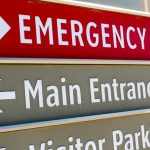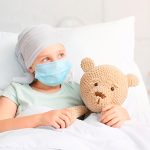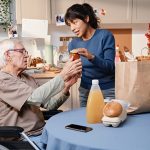-
Healthy Habits
An Integrative ApproachDerived from traditional Chinese medicine, acupuncture shows benefits for easing cancer-related pain.
by Tyler Santora
-
Sound Advice
Do my cancer symptoms merit a trip to the hospital?An emergency room physician offers advice on when to seek help for concerning symptoms.
-
Sound Advice
Should my family members undergo genetic testing for cancer?A genetic counselor can help determine if genetic testing would benefit you and your family.
-
Your Cancer Guide
A Little PlanningTake these steps to help prepare for cancer treatment.
by Hester Hill Schnipper
-
Caregiving With Confidence
Caring for the CaregiverTaking time for yourself, even for a short period, can provide perspective and bolster your reserves.
by K.J. Bannan
-
Forward Look
Wrap-around Care for Kids With CancerLegislation creates opportunities and challenges for children with cancer who receive treatment while on hospice.
by Sharon Tregaskis
-
Sound Advice
Can respite care allow me to take a break from caregiving?Respite care can provide temporary relief for those caring for a loved one with cancer.
-
On Wearing a Brave Face for Myself and Others
A woman living with lung cancer reflects on the contrast between how people see her and how she feels as someone living with metastatic disease.
by Suzanne Adriana Remington
-
Spouses of Cancer Patients Have Greater Risk of Psychiatric Disorders
Mental health support in the wake of a cancer diagnosis often doesn’t extend to spouses.
by Karon Warren
Cancer Talk
Biotin Supplements Can Skew Cancer Lab Results
Products containing biotin can alter lab tests for people during and after cancer treatment.
by Laura Gesualdi Gilmore
Connecting More Patients to Cancer Clinical TrialsAACR conference brings experts together to discuss strategies to reach people historically left out of cancer research.
by Eric Fitzsimmons
Treatment Combination Improves Survival in EGFR-positive Lung CancerAdding chemotherapy to targeted therapy improves outcomes for people with advanced EGFR-positive non-small cell lung cancer.
by Sandra Gordon
Lessons From 20 Years Living With CancerMultiple myeloma survivor Jonathan Gluck reflects on uncertainty, and the scientific progress that has kept him living with cancer for more than two decades.
by Eric Fitzsimmons















